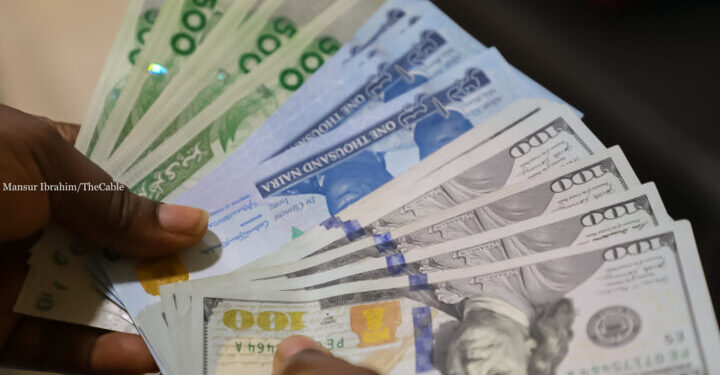The amount of dollars traded on the Investor & Exporter forex window experienced a significant surge, marking a 46.69% increase to $123.25 million on Monday. This substantial rise follows Friday’s turnover of $84.02 million in the official market.
Despite the increased forex trading volume, the naira faced a 1.96% depreciation, closing at N795.41/$ on Monday, compared to N780.14/$ on Friday, as reported by data from FMDQ OTC Securities Exchange. Trading on Monday commenced at N780.83/$ and concluded at N795.41/$.
During the trading session, the naira exhibited fluctuations, reaching a high of N1099/$ and a low of N701/$. Simultaneously, on the parallel market, the naira continued its downward trend, depreciating by 4.55% to N1,150/$ from the N1,100/$ it traded for on Friday.
A Bureau de Change Operator known as Awolu commented on the market dynamics, stating, “I am buying at N1,110/$ but selling at N1,150/$.” Another trader, Kadir, added, “It is N1,150/$ today if you want to sell. If you want to buy, it is N1,170/$.”
The continuous depreciation of the naira has been observed since the Central Bank of Nigeria’s decision in June to allow the free flow of the country’s exchange rate on the official Investor & Exporter forex window. Before this policy change, the naira traded at 471.67/$ on the FMDQ official market and 765/$ on the parallel market in June.
However, the Economist Intelligence Unit (EIU) forecasts that the naira will close 2023 at N810/$ on the official market. The EIU, in its recently released country report, highlighted that despite initially floating the naira in June, the central bank has reverted to guiding the exchange rate by restricting access to foreign exchange sales for banks and other dealers deviating from a preferred rate.
The EIU emphasized that this unsupportive monetary policy is likely to continue putting pressure on the naira, stating, “However, other factors undermining the naira, such as deeply negative short-term real interest rates, require an orthodox monetary policy that the authorities have not demonstrated enough appetite for. We therefore do not expect a currency float to succeed over 2024-28, although it seems likely that the fuel subsidy will end when the Dangote refinery is able to replace imports, from late 2024 onwards.”









